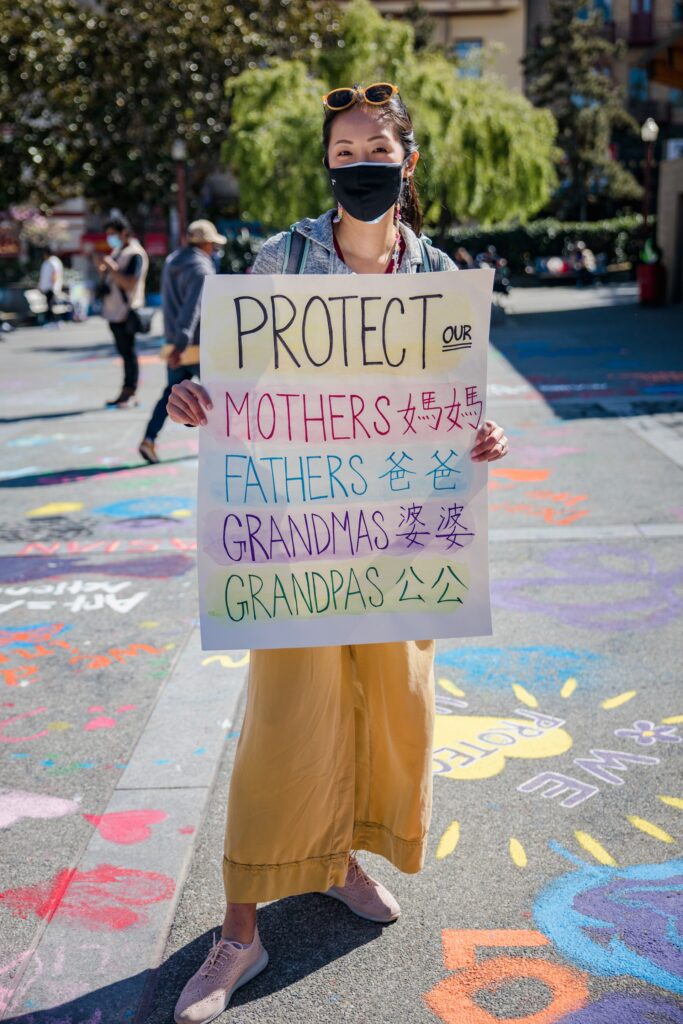Navigating mental health as an Asian teen? You're not alone. Dive into resources, gain insights, and find tips tailored for you

If you’re reading this and feeling unsupported or misunderstood about your mental wellbeing, know it is not uncommon.
“Talking about our mental state isn’t really a part of our vocabulary,” Elaine, a high school senior from California shares about her Asian American family.
Jeremy, a fellow high schooler, agrees, adding he feels Asian parents focus only on solutions rather than understanding or discussing emotions, he says.
Ellen, a queer high school student, speaks of the pressures of being an Asian American immigrant’s daughter. She finds the stereotypical, but very real, academic expectations particularly challenging, hindering open conversations.
Ellen.“They worked so hard to give me all these academic resources and if I don’t utilize them to the fullest … I feel like this sort of guilt that I’m not working as hard as I should be,”
Your experiences, while unique, share common threads that run deep through Asian American and Pacific Islander (or also known as AAPI) homes throughout the United States. AAPI communities are diverse, and while we all face challenges, they vary depending on our specific backgrounds. So, whether you’re from a Chinese, Indian, Japanese, Filipino, Vietnamese, Korean, Hawaiian, or another background, you’re likely to encounter barriers and frustrations unique to your community.
Language and perception matter too. Samskruthi, a high school student from San explains in her culture, there is only one word for mental illness, not several nuanced words, and it generally conjures extreme examples.
“Someone who’s like foaming at the mouth or screaming on the street… we think of these really grand examples,” she says.
Navigating the world as an AAPI teen comes with its own set of unique challenges. While there might be a gap in in-depth research that speaks directly to your age, there are insights from studies and surveys that shine a light on key issues among Asian adults that might sound familiar.
We know the silence around mental health in many communities can be deafening. Coupled with societal pressures, like that “model minority” expectation, it’s not always easy. Encountering microaggressions and outright racism is an unfortunate reality for many. The post-9/11 era brought forth Islamophobia that deeply affected South Asian and Sikh teens.
Moreover, the recent pandemic amplified another wave of discrimination against Asians. In AAPI families, it can sometimes feel like every action holds the weight of your family’s reputation, making open discussions about personal struggles a challenge.
With this in mind, let’s unpack the specifics and gain a better understanding together from a variety of recent studies:
• In 2021, 16% of Asian adults reported experiencing any mental illness in the past year, compared to 24% of White adults.
• In 2021, only 25% of Asian adults with any mental illness in the past year reported receiving mental health services, versus 52% of White adults.
• Suicides were the leading cause of death among Asian and Pacific Islander adolescents in 2020. And those rates more than doubled from 2010 to 2020.
• In a study specifically looking at college and grad students, Asian students were least likely to receive mental health care, with approximately 80% of cases going untreated.
• The COVID-19 pandemic led to a rise in discrimination, racism, and physical attacks on Asian Americans, intensifying mental health stressors.
• The Stop AAPI Hate center collected nearly 11,500 reports of racist incidents against Asian Americans and Pacific Islanders during the height of the pandemic.

You have the power to nurture and improve your mental health. Take it step by step and start today. Here are a few options to try out:
???????? Choose You: Prioritize your wellbeing. Small acts can spark significant changes: take a few grounding breaths or note down a moment that made you smile today. Grant yourself the time to stretch, give yourself a pep talk, or tidy up a little space in your room.
???????? Recharge Routines: Recognize when you need a pause. Let your mind rest. Whether it’s meditating, having tech-free hours, or merely stretching your limbs between tasks, develop habits that prevent you from constantly feeling exhausted.
????????Leisure Moments: Life isn’t all about hard work. Amid school and other responsibilities, find moments of pure joy. Dive into that show everyone’s discussing, get lost in a book, challenge friends to the latest online game, try mastering that popular dance, or simply enjoy a warm bath or a peaceful walk.
????????Tap into Your Roots: Celebrate the beauty and richness of your culture. Prepare a cherished family recipe, attend local cultural events, explore traditional attires, or create art that reflects your heritage. Search for videos of AAPI individuals discussing mental health; understanding the link between your cultural identity and wellbeing is crucial.
???????? Seek Support: There’s strength in being understood. It might be a cousin who always gets you, an aunt or teacher who’s always there to listen, or a close friend from school – reach out to them. If you’re looking for more guidance, there are many groups specifically designed to support Asian youth, ready to help with the unique challenges you might face.
Asian Mental Health Collective: This organization aims to make mental health easily available, approachable, and relatable to Asian communities. They share stories of mental health journeys among the Asian diaspora you might relate to. Check out Mental Health Mukbang, their video/podcast, that breaks down big mental health ideas into easily digestible sound bites.
MannMukti: This organization focuses on South Asian mental health and has a storytelling platform for South Asians to share their experiences, providing a sense of community and understanding. We also like their tips on how to start a conversation with a friend and their podcast on mental health and stigma.
National Alliance on Mental Illness (NAMI): This organization is a fantastic resource for diving into support and education about the impact of mental health, including a comprehensive list of resources for young adults. They also have Teen and Young Adult (T&YA) helpline where you can connect with trained peers who have gone through situations just like you. You can text, call or chat with them Monday through Friday from 10:00 AM – 10:00 PM ET.
Project Lotus: This non-profit focuses on stigma-busting conversations around topics like the “model minority” myth, navigate sibling competition, handle the pressure of beauty standards.
Disclaimer: This website offers general information and is not a substitute for professional advice. We are not clinicians or trained professionals; this information should not replace seeking help from a qualified healthcare provider. Please consult a healthcare provider for personalized guidance.